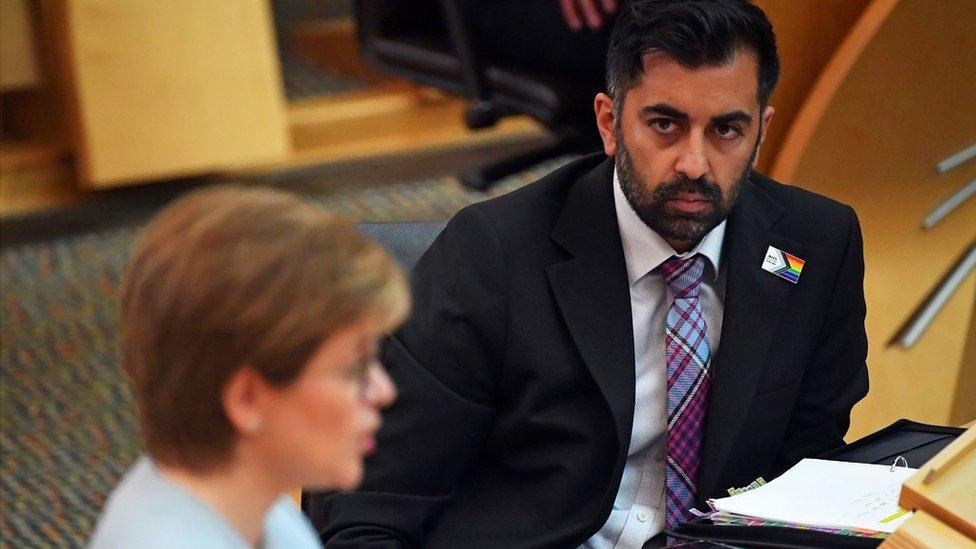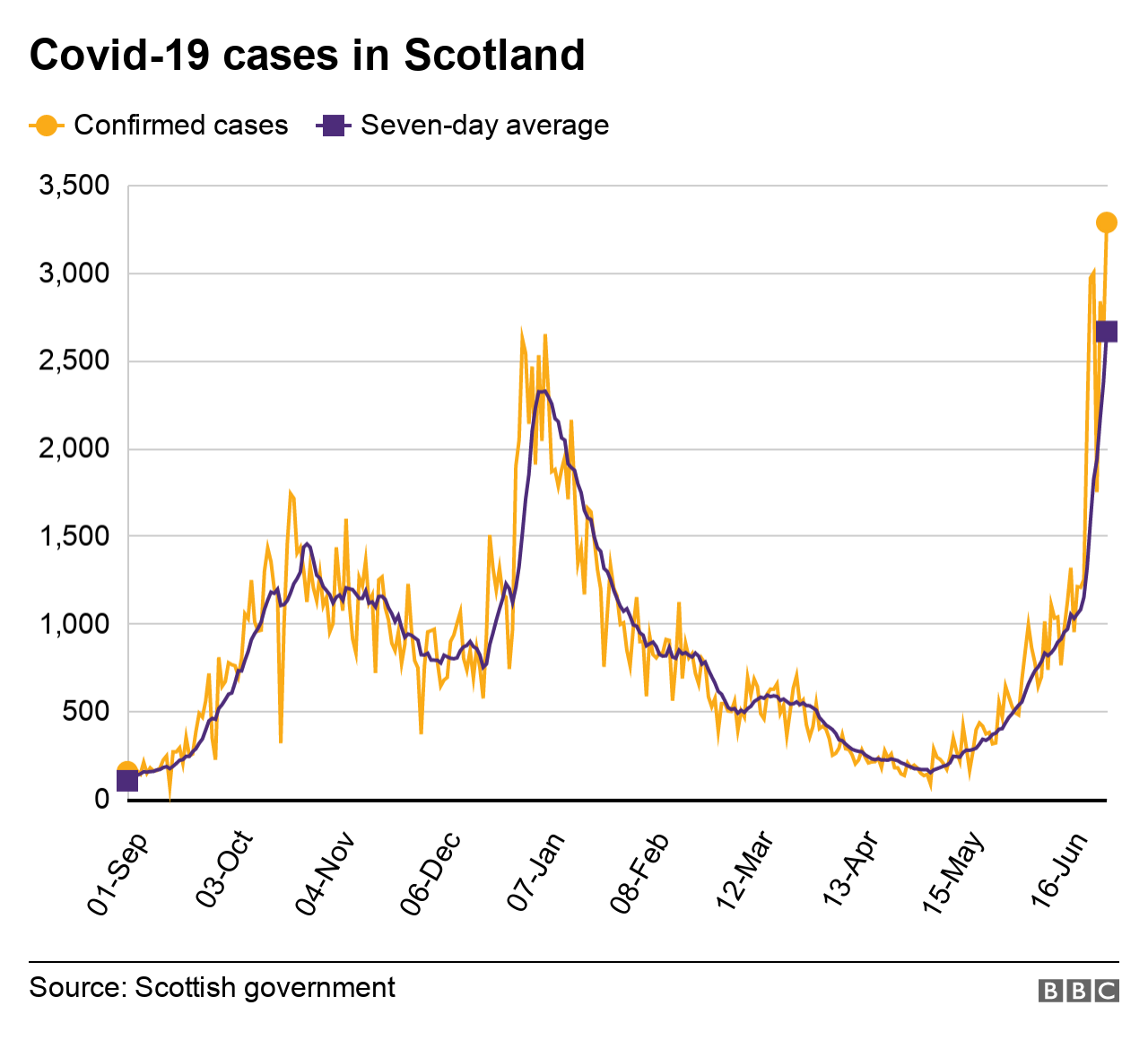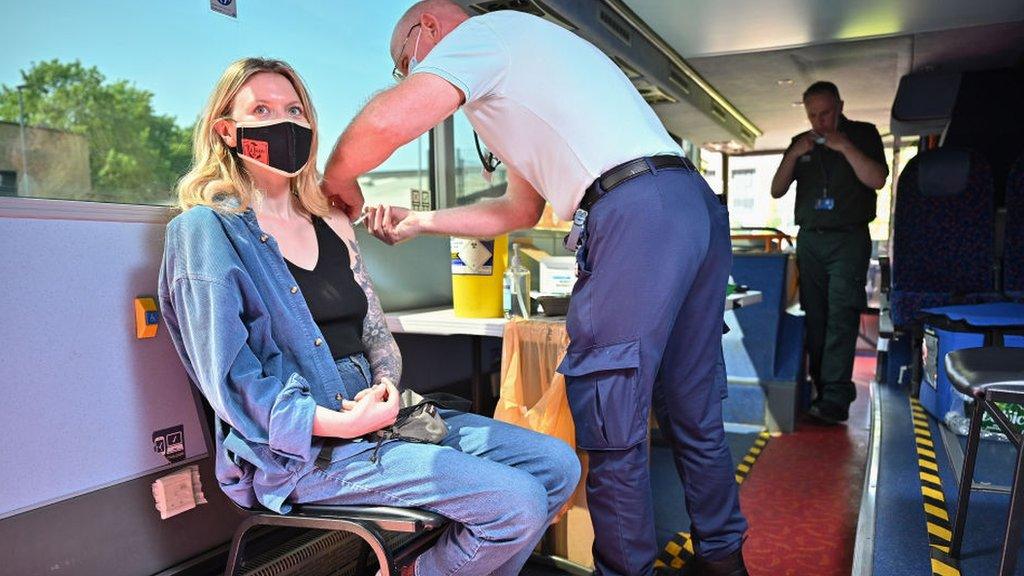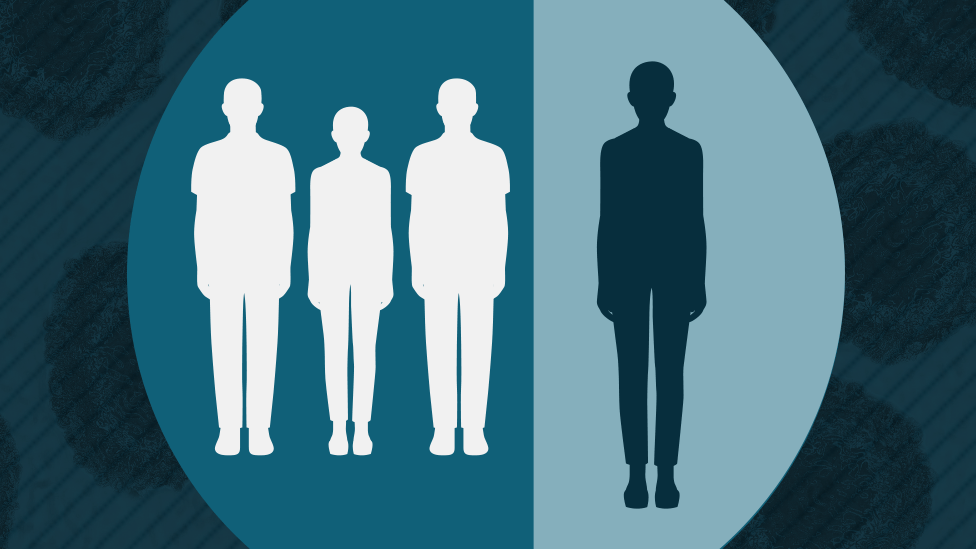Covid in Scotland: Yousaf says 'no more restrictions' despite surge
- Published
- comments

Mr Yousaf said young men travelling and gathering indoors to watch Euro 2020 matches was "high risk"
Health Secretary Humza Yousaf has said no further restrictions are planned for Scotland despite an ongoing surge in Covid cases.
Mr Yousaf told the BBC he did not believe cases would reach 100,000 per week - a prediction modelled by scientists in a worst case scenario.
A further 3,285 people tested positive on Monday, a new record high.
While there was a "weakening" link between cases and serious illness, Mr Yousaf said numbers could keep rising.
Scottish government scientists believe the 100,000 cases per week figure could be reached by mid-July.
They modelled the future impact of the pandemic, external based on positive test data reported up to 24 June.
The report said: "There is uncertainty as to whether infections will continue to rise or will reduce in coming weeks. This will drive whether hospital beds and intensive care beds also continue to rise."
It added that the increase in cases in the last few days was "likely" to lead to an increase in hospitalisations and intensive care use, with "considerable uncertainty" in future weeks.

Humza Yousaf said the government would 'not allow' a worst case scenario of 100,000 cases per week
However Mr Yousaf told the BBC's Good Morning Scotland programme that the Scottish government "wouldn't allow" those numbers to arise and would "never allow" hospitals to come under that level of strain.
He stressed that the vaccination programme was the "route out" of the pandemic, rather than imposing a further lockdown.
Mr Yousaf said: "We might continue to see rise in cases, but thankfully because of the vaccine that link between rising cases and severe illness and hospitalisation - and thankfully even commensurate numbers of deaths - has weakened.
"That means we wouldn't want to go back to being in a position where we're re-imposing restrictions. Let's not forget lockdown in its severest form also had health impacts, economic impacts and so on."
Prior to the publication of Covid statistics on Monday, the previous highest number of cases was 2,999 reported last Thursday.
On the cause of the recent surge, Mr Yousaf said cases were "very clearly skewed" towards young males under 40 - adding that some experts associated the disparity with people gathering indoors to watch Euro 2020 matches.
Those travelling to London in coaches to watch the Scotland squad was "high risk" and involved "little social distancing", Mr Yousaf said.
But the health secretary argued that deploying travel restrictions would only have garnered further criticism and penalised people travelling to London to visit family.
"People should understand the virus hasn't gone away," said Mr Yousaf. "We need people to use their judgement."

The government aims to move the whole of Scotland to the lowest level of the five-tier system of restrictions on 19 July, before lifting most measures entirely in August.
However, the announcement of these plans has coincided with a sharp rise in new cases of the virus, with infections surpassing the highest levels of the "second wave" in January.
Meanwhile Prime Minister Boris Johnson has said people in England are "very likely" to be able to return to "pretty much life before Covid" on 19 July.
'We need to live with Covid'
Cabinet Office minister Michael Gove told Good Morning Scotland that the rollout of vaccinations meant the UK was in a position to open up even as case numbers "remain higher than we'd ideally want".
He said: "On the basis of everything we can see at the moment we recognise that lockdown has had an effect on people's mental health, it's had an effect on the economy.
"But we've put public health overall first. We're going to have to live with Covid in the way we live with flu as a disease that's there, that needs to be managed and vaccination and effective public health measures are the way to go."
First Minister Nicola Sturgeon is due to host a briefing on Tuesday with Dr Gregor Smith, the chief medical officer, to discuss the rising Covid case numbers.
She is likely to repeat her warnings to the public to take care with three weeks to go until a further easing of restrictions.


- Published24 June 2021

- Published13 January 2023
